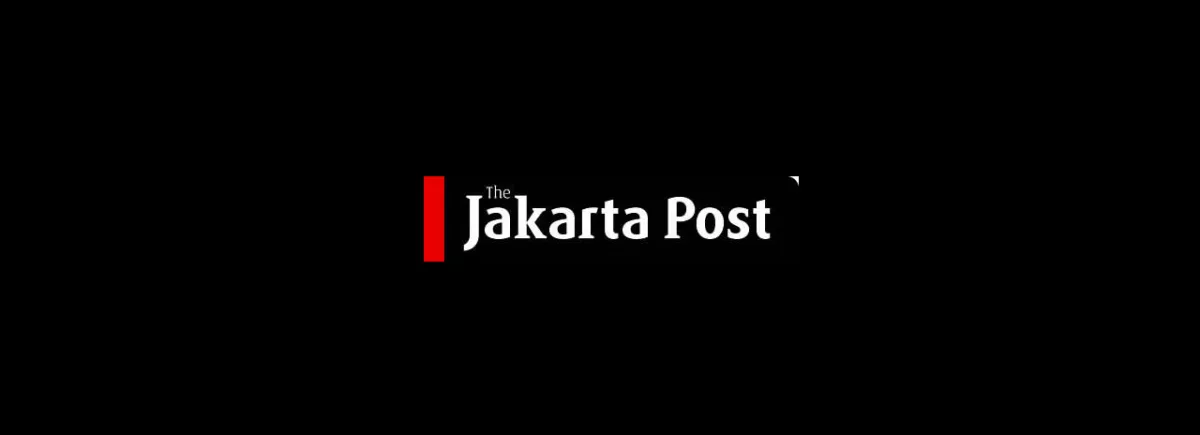
Violence against media mirrors intolerance of differences
Eko Maryadi, Chairman of the Southeast Asian Press Alliance, has worked in close collaboration with CFI, particularly during the organisation of the "4M" forum in Jakarta in 2014.
In response to the recent attack against Charlie Hebdo in France, he has written an article in The Jakarta Post on the freedom of the press in Southeast Asian countries.
The armed assault on the office of French cartoon magazine Charlie Hebdo that killed 12 citizens, including two police officers, in Paris was both an attack on humanity — since the murderers attacked an unarmed media office — and on the principles of France: liberté, egalité, fraternité.
For centuries, the principles of "freedom, equality, fraternity" have been adopted by the French people for their democracy, which has even colored European civilization.
In Europe, France is among the immigrant-friendly nations. It welcomes foreigners, including those from countries with Muslim citizens, such as Algeria, Morocco, Tunisia, Chad, Sudan and Nigeria. The French government opens the nation's doors to immigrants from "troubled" regions, such as the Middle East and Eastern Europe. In the late 1970s, France even provided refuge to the leader of Iran's Islamic revolution, the Ayatollah Khomeini, when the regime of the Shah of Iran wanted to arrest him.
French natives revel in a life of differences and diversity. Culturally, France is known for its liberal, more relaxed, egalitarian and expressive attitude toward life. Despite some citizens being racist and discriminative, in general French people treat immigrants well.
As newcomers — from any country, religion or ethnicity — it is only natural to expect immigrants to adopt the principle of "Where we stand is where we hold up the sky," the Indonesian version of "When in Rome, do as the Romans do."
Just as in Indonesia, anybody from any ethnicity or religion is required to acknowledge Pancasila as the foundation of the diverse identities and beliefs in this country.
Immigrants should accept that the Republic of France is a secular country. It is clearly not a religion-based state. To make a joke of religions, of the priests, rabbis, prophets or those in power, is not blasphemy.
In a religion-based state, the tradition of respecting religious teachings is equal to the "worship" of prophets, holy books, pastors, priests and other religious leaders. In such countries they forget that pastors, priests and rabbis are ordinary humans.
Founded in 1969, the cartoon magazine Charlie Hebdo has targeted all kinds of religious leaders, authorities and figures, communities, the government and fellow French citizens with its satire. The sudden assault of Jan. 7, which would be considered "heroic" by extremists, was so garish and incompatible with the principles of the French and of humanity, that world leaders descended on its capital on Sunday to join a street march.
Such barbaric acts may not be unexpected in the troubled lands of Somalia, Iraq, Pakistan or Afghanistan. But this was France.
In Southeast Asia's diverse region, including in Indonesia, it is equally unacceptable for anyone or any group to decide to act violently to murder people with different identitites or faiths for whatever reason.
Yet in the region's democracies, both the majorities and the minorities still need to learn to voluntarily live side by side peacefully in their diversities. The signs of a civilized and sensible people are shown in their attitude toward differences.
Diversity among Muslims themselves is evident in the Muslim majority countries of Indonesia, Malaysia and Brunei. Indonesia's hardliners have been notorious for intimidating followers of other faiths and moderate Muslims.
Elsewhere, suppression of freedom of expression and freedom of the press still comes from the authorities.
In Brunei, a religious monarchy, the media and the society cannot criticize either the monarch or Islamic practice.
In Thailand in May 2014, a military junta took over power, enforced martial law and imposed restrictions on media reports, in particular on broadcast media.
In Myanmar, we see signs of setbacks in press freedom and journalists' safety. Negative reports about the government will surely face threats.
A harsher situation arises in Vietnam and Laos. The governments of both countries will soon impose stricter regulations for the Internet. The situation is akin to that in Singapore, where individuals and independent media encounter strict requirements in Internet registration, while journalists and the public are prone to defamation charges from high officials.
And in the Philippines and Indonesia, the region's two countries considered as having the strongest press freedom, issues of work safety and legal protection for journalists are still unresolved. Journalists still demand accountability for the massacre of media workers in Amapatuan City in 2009.
Meanwhile, in Indonesia there are still threats and attacks on journalists and media offices, many in the regions. Many of the offenders are individuals or groups unhappy with media reports.
We do not worship freedom without boundaries, but as part of a society that believes in democracy and press freedom, we should together protect the media from the threat of terrorism and from intimidation by brutal groups that often abuse God's name and religion to justify killing.

The writer chairs the Southeast Asian Press Alliance (SEAPA) in Bangkok.


